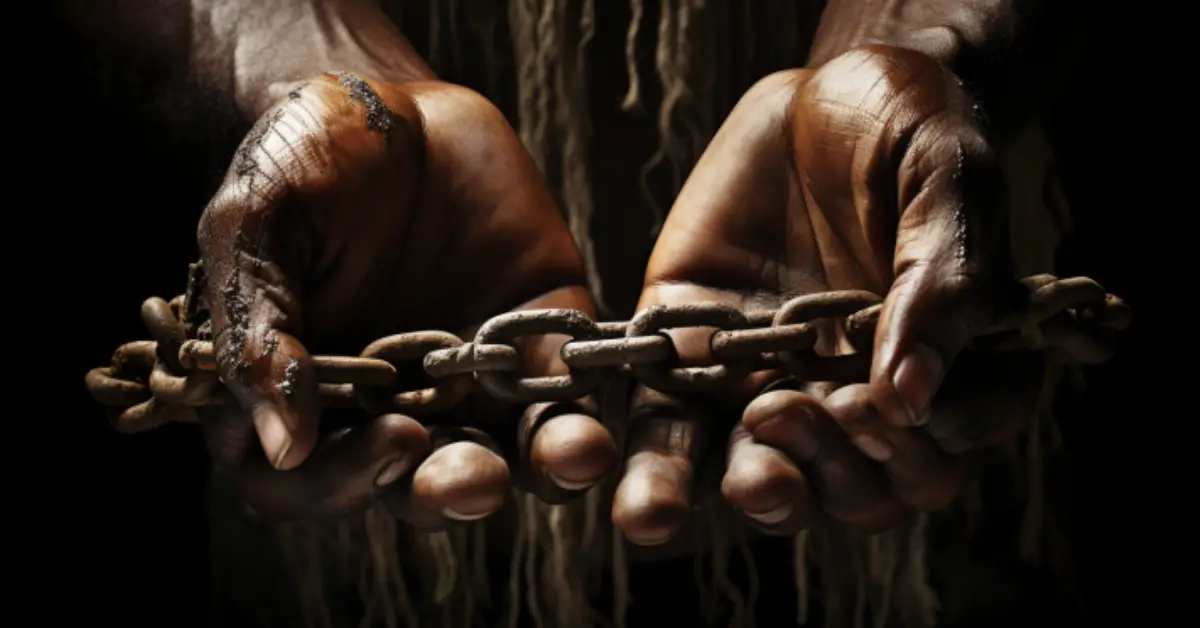The Bible’s references to slavery have sparked countless discussions. In essence, the Bible does not explicitly condemn slavery, yet it places restrictions and guidelines on how slaves should be treated, especially in the Old Testament. The New Testament, while it doesn’t condemn slavery, emphasizes the equal value of all people in the eyes of God and encourages slaves to seek freedom when possible.
Moreover, Christianity as practiced by Jesus emphasized love, kindness, and respect for all humans, regardless of their status. The perspectives on slavery in the Bible vary, reflecting the cultural and societal norms of the times in which the texts were written.
Curious about the nuanced views and transformative insights on slavery found in the Bible? Keep reading to uncover the depth of the Biblical perspective, revealing not just historical norms, but timeless morals and divine wisdom.
What Does the Bible Say About Slavery?
The Bible, a complex collection of texts, showcases diverse perspectives on slavery, revealing a multifaceted understanding of it. Slavery in the Old Testament was allowed, but there were clear laws stating that slaves should be treated fairly and had the right to be free after a certain period. The Israelites, for instance, were instructed to release their Hebrew slaves every seventh year. This illustrates a form of regulation and limitation on the institution of slavery, reflecting God’s view on fairness and compassion.
Delving into the New Testament, the approach to slavery is more about moral counsel and ethical conduct rather than societal norms and legal statutes. Jesus never directly addresses slavery but preaches love, kindness, and equality. His teachings emphasize the inherent value of every individual, slave or free, as everyone is equal in the eyes of God. The Apostle Paul, in his letters, asks slaves to obey their masters but also admonishes masters to treat their slaves with respect, highlighting the reciprocal responsibility in all relationships.
The sin of inequality is highlighted in the teachings of Jesus, emphasizing that no one is superior or inferior in the spiritual realm. These teachings imply that any form of oppression or unjust treatment is incompatible with Christian values. Furthermore, Paul encourages slaves to gain their freedom if they can, acknowledging the intrinsic desire for freedom ingrained in every human being.
The cultural, societal, and temporal contexts in which the Bible was written influenced the way slavery is depicted. The texts paint a picture of a society grappling with moral, ethical, and spiritual questions about slavery, resulting in a spectrum of attitudes, ranging from acceptance and regulation to moral reflection and spiritual equality.
Bible Verses About Slavery
- Exodus 21:2 (NIV) “If you buy a Hebrew servant, he is to serve you for six years. But in the seventh year, he shall go free, without paying anything.”
- This verse showcases the limitation and regulation on slavery, allowing for freedom and implying a moral and ethical dimension to the treatment of slaves.
- Leviticus 25:39-41 (NIV) “If any of your fellow Israelites become poor and sell themselves to you, do not make them work as slaves.”
- Here, God’s view is evident, showing compassion and consideration for the less fortunate and discouraging the treatment of the poor as slaves.
- Ephesians 6:9 (NIV) “And masters, treat your slaves in the same way. Do not threaten them, since you know that he who is both their Master and yours is in heaven, and there is no favoritism with him.”
- This verse emphasizes equality and fair treatment, reflecting the teachings of Jesus on love, kindness, and respect for all, regardless of status.
- 1 Timothy 6:1-2 (NIV) “All who are under the yoke of slavery should consider their masters worthy of full respect… And those who have believing masters should not show them disrespect just because they are fellow believers.”
- This passage portrays the reciprocal respect and honor that should exist between slaves and masters, emphasizing the moral responsibility on both sides.
- Colossians 4:1 (NIV) “Masters, provide your slaves with what is right and fair, because you know that you also have a Master in heaven.”
- Here, masters are reminded of their accountability to God, urging them to be fair and just in their treatment of slaves.
- 1 Corinthians 7:21-22 (NIV) “Were you a slave when you were called? Don’t let it trouble you… For the one who was a slave when called to faith in the Lord is the Lord’s freed person.”
- This verse emphasizes spiritual freedom and equality, reiterating the teachings of Jesus about the inherent value of every individual.
- Galatians 3:28 (NIV) “There is neither Jew nor Gentile, neither slave nor free, nor is there male and female, for you are all one in Christ Jesus.”
- This powerful verse echoes the overarching Christian message of unity, equality, and love, as everyone is equal in the eyes of God.
- Philemon 1:16 (NIV) “No longer as a slave, but better than a slave, as a dear brother… He is very dear to me but even dearer to you, both as a fellow man and as a brother in the Lord.”
- Paul’s letter to Philemon touches on the transformation of relationships through Christian brotherhood, surpassing the societal norms of slavery.


